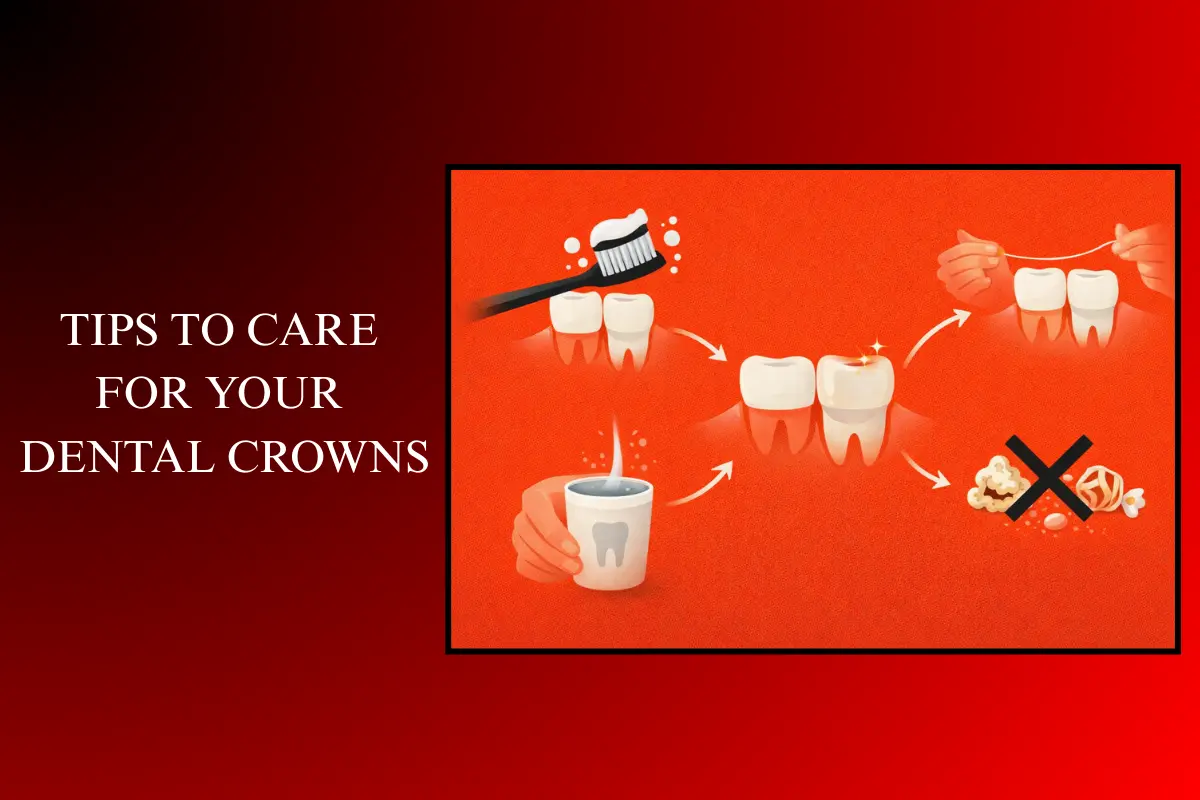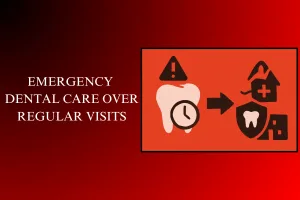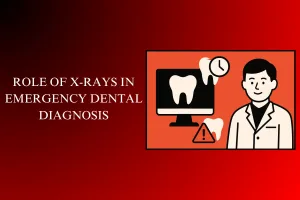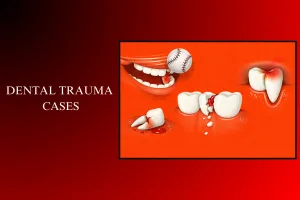Dental crowns are durable and reliable solutions for restoring damaged or weakened teeth. Whether you received a crown for cosmetic reasons or to protect a tooth after root canal treatment, proper care is crucial to maintaining their appearance and longevity.
Neglecting crown care can lead to issues like gum disease, decay around the crown, or even crown failure. Below are 8 expert-approved tips to help you preserve the integrity of your dental crowns and keep your smile healthy.
Book Your Appointment Now!Expert Tips for the Care of Dental Crowns
Proper care of dental crowns is essential to maintain their durability and protect your oral health. Follow these expert tips to keep your crowns in top shape.
1. Brush Gently But Thoroughly
Twice-daily brushing using a soft-bristled toothbrush and fluoride toothpaste is essential. Crowns can’t get cavities, but the natural tooth underneath can. Gentle yet thorough brushing helps prevent plaque buildup along the gum line and around the crown margins — the most vulnerable areas.
2. Floss Daily Without Fail
Flossing removes debris and bacteria between teeth and along the crown edges. Use standard floss, a floss threader, or a water flosser to avoid irritating the gums or dislodging the crown.
3. Avoid Hard, Crunchy, or Sticky Foods
Chewing on ice, hard candies, or sticky treats like caramel can loosen, crack, or dislodge a crown. Opt for softer foods and chew on the opposite side of your crown if it’s new.
4. Address Teeth Grinding (Bruxism)
Grinding or clenching teeth, especially during sleep, puts excess pressure on crowns, leading to wear or damage. A custom nightguard from your dentist can prevent this and extend the life of your crowns.
5. Be Mindful of Staining Agents
Crowns are resistant to staining, but nearby natural teeth are not. Limit coffee, tea, red wine, and smoking to maintain a uniform smile. Use a non-abrasive whitening toothpaste to keep your teeth clean without damaging crown surfaces.
6. Don’t Use Teeth as Tools
Opening packages or biting fingernails with your teeth can crack or dislodge crowns. Always use proper tools — not your teeth — to avoid dental emergencies.
7. Schedule Regular Dental Visits
Routine check-ups every six months allow your dentist to inspect the fit and condition of your crowns, clean hard-to-reach areas, and detect early signs of issues like decay or gum irritation.
8. Act Fast If You Notice Problems
Sensitivity, discomfort, or a loose crown shouldn’t be ignored. Prompt dental attention can prevent further damage or infections, ensuring your crown stays secure and effective.
Get Expert GuidanceBenefits of Proper Care of Dental Crowns
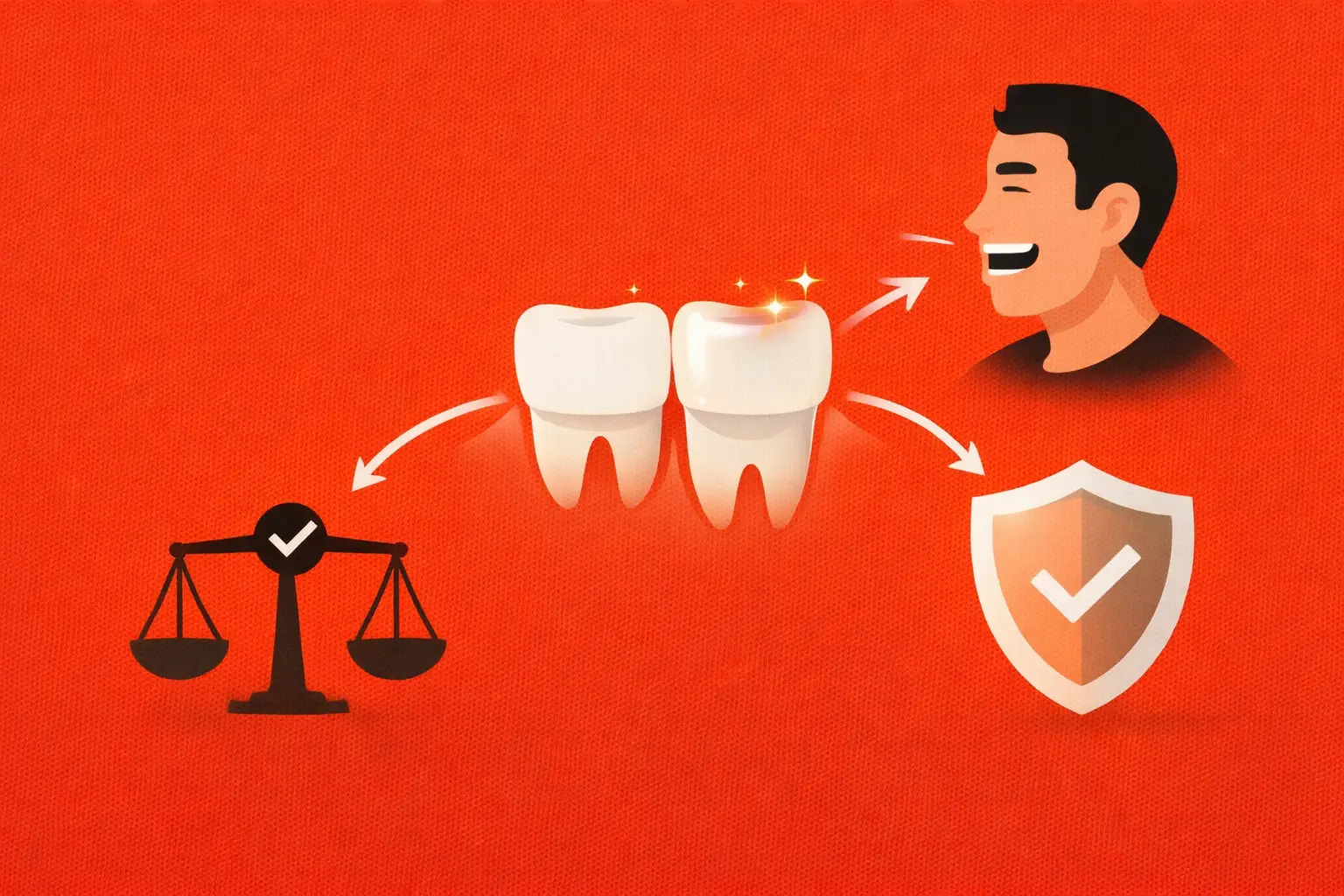
- Extended Crown Lifespan: Well-maintained crowns can last 10–15 years or more, reducing the need for costly replacements.
- Prevents Decay and Gum Disease: Caring for dental crowns helps prevent plaque buildup and bacteria, lowering the risk of infections or decay beneath the crown.
- Maintains a Healthy, Radiant Smile: Clean crowns enhance the aesthetics of your smile and maintain uniformity with your natural teeth.
- Avoids Dental Emergencies: Preventive care reduces the risk of sudden crown fractures, loosening, or pain that might require urgent dental treatment.
- Saves Money Over Time: Investing in daily care helps avoid additional dental costs from repairs or replacements caused by neglect.
FAQs: Care of Dental Crowns
Final Thoughts: Why Proper Care of Dental Crowns Matters
Caring for your dental crowns doesn’t have to be complicated — with daily attention and smart habits, you can protect your investment and enjoy a strong, beautiful smile for years. From proper brushing to avoiding harmful foods, these simple tips make a big difference in the lifespan and health of your dental restorations.
At Night and Day Emergency Dentist, we provide expert guidance and support to help you maintain your crowns and overall oral health. Whether you need a crown check-up, repair, or emergency dental care, our experienced team is here for you 7 days a week — including late nights and weekends.
